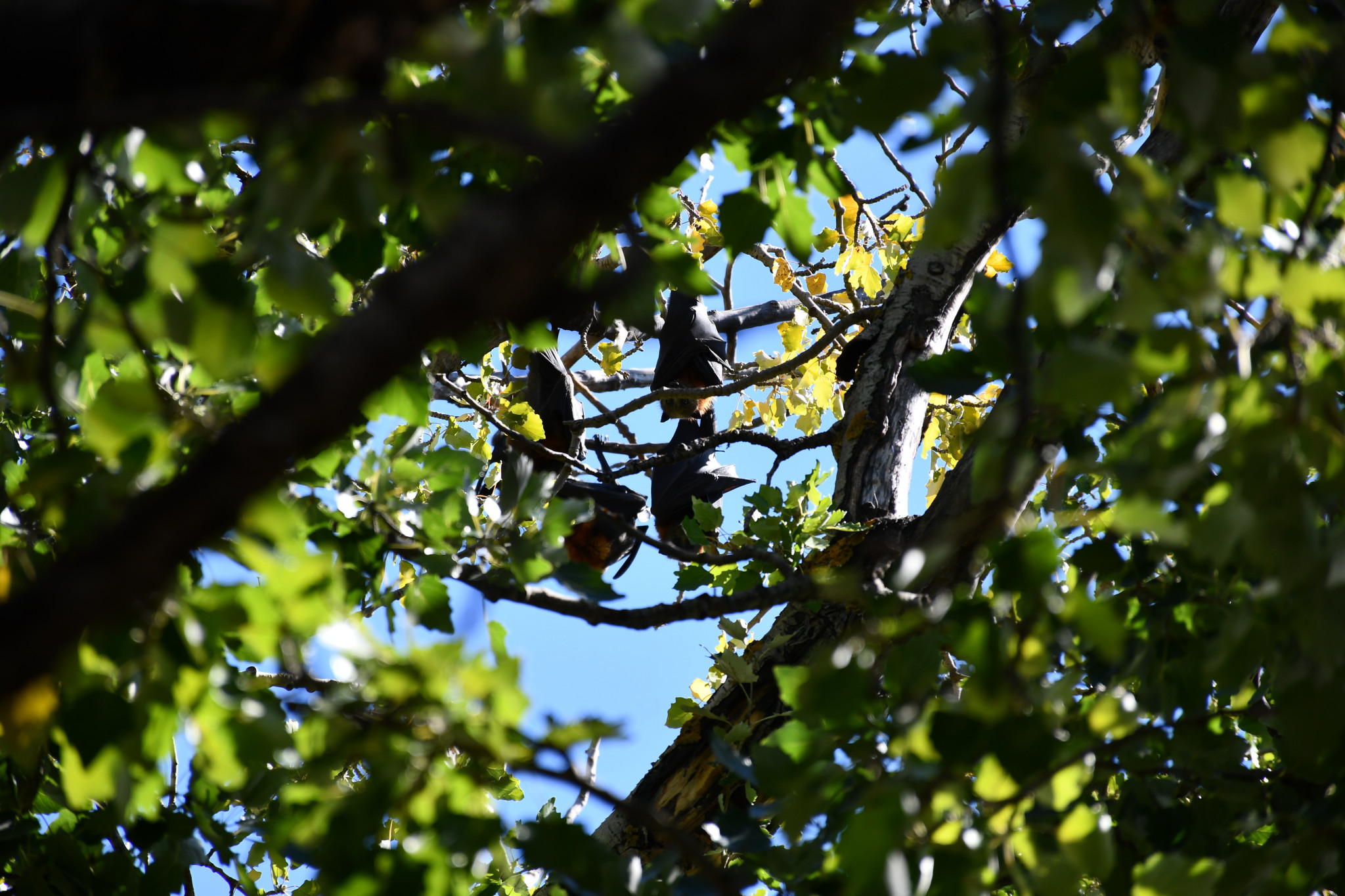General News
1 April, 2025
Bats find new home in town
A colony of vulnerable flying foxes have found temporary accommodation in Phillips Gardens as the bats search for food in dry conditions.

The grey-headed flying foxes have settled into the branches of Phillips Gardens over the last two weeks in what Central Goldfields Wildlife Rescue (CGWR) co-founder India Armstrong describes as a rare treat.
“I think we’re so lucky to get them migrating through town ... it’s fantastic to see that little colony there,” she said.
The grey-headed flying fox is listed as vulnerable and are protected as a threatened species.
In 2001, a NSW Scientific Committee found habitat loss was the primary reason for the grey-headed flying foxes decline.
According to the Australian Conservation Foundation, habitat loss impacts their roosting and foraging sites while heat stress and conflict with people contributes to the species decline.
“I think the number one thing is for us to learn how to coexist with them because they are so beneficial to the ecosystem,” Ms Armstrong said.
Although the public might know of large colonies, the NSW Scientific Committee found this was due to habitat destruction concentrating populations locally.
As a species their numbers are in decline, threatening their role as pollinators and seed dispersers.
“Being keystone pollinators and having such a benefit on our forests and habitats — they are a species we want to keep around,” Ms Armstrong said.
Ms Armstrong believes the recent dispersal of flying foxes in the region is due to a lack of food caused by dry conditions.
“It is more than likely we currently have these flying foxes because there is no food around and they will travel individually 50 to 60 kilometres in a night looking for feed. They will mostly eat off native flowers and eucalyptus but they will supplement their diet with fruit trees,” she said.
Locals are recommended to consider how they can be hospitable hosts to the town’s winged guests.
“At the moment they are quite hungry so our recommendation if possible is to allow some [fruit tree] branches to be free from netting. Sacrifice some fruit,” she said.
“It’s going to benefit them and it isn’t going to change their patterns or encourage the flying foxes to stay in your yard or in the region. They are still going to migrate.”
Over the last six years, Ms Armstrong has received three calls for grey-headed flying foxes in distress caused by powerlines, fruit netting, and being hit by a vehicle.
If anyone finds an injured flying fox, Ms Armstrong said they shouldn’t handle it and instead call CGWR immediately on 0499 654 950 or visit the CGWR Facebook page.